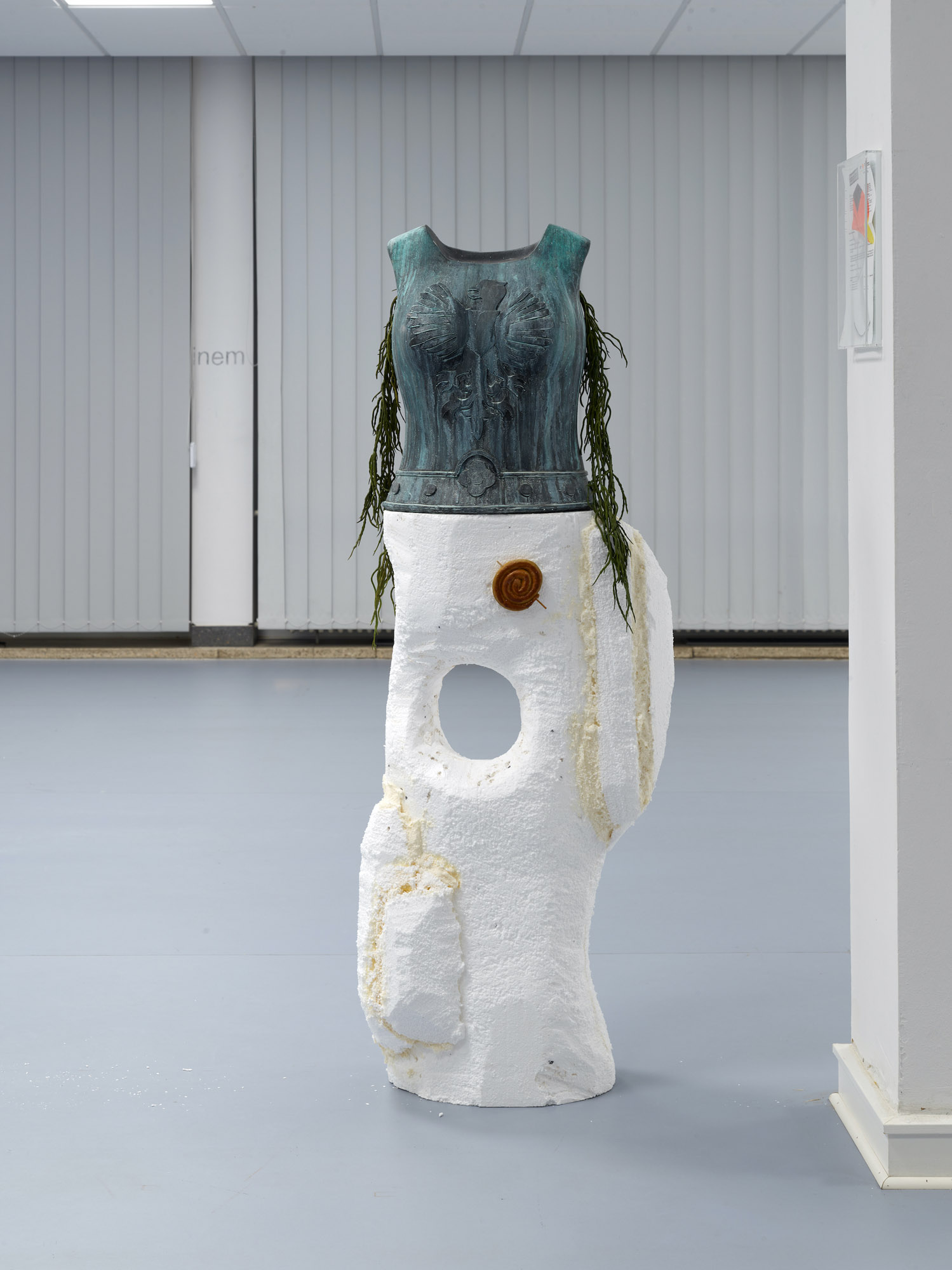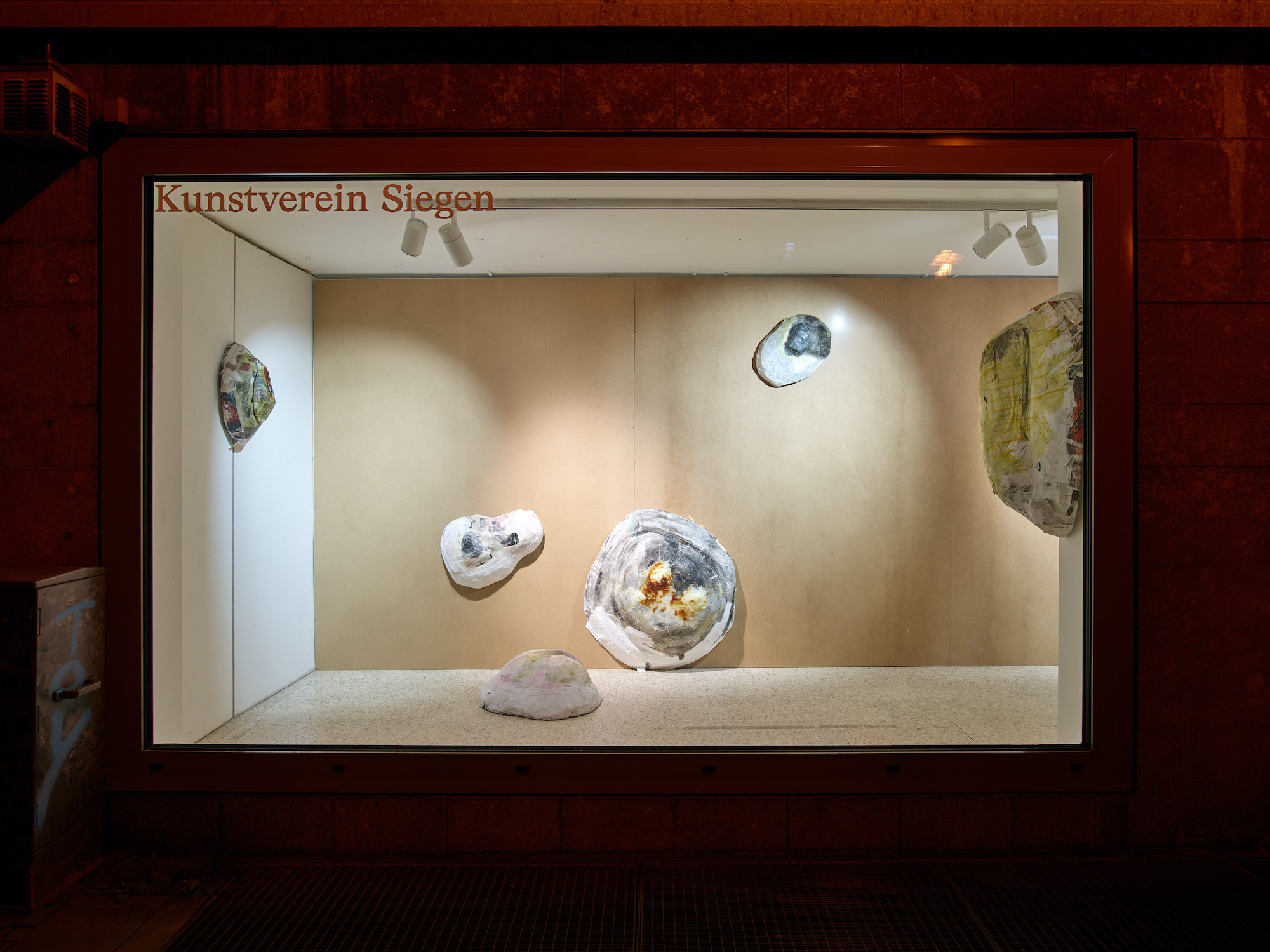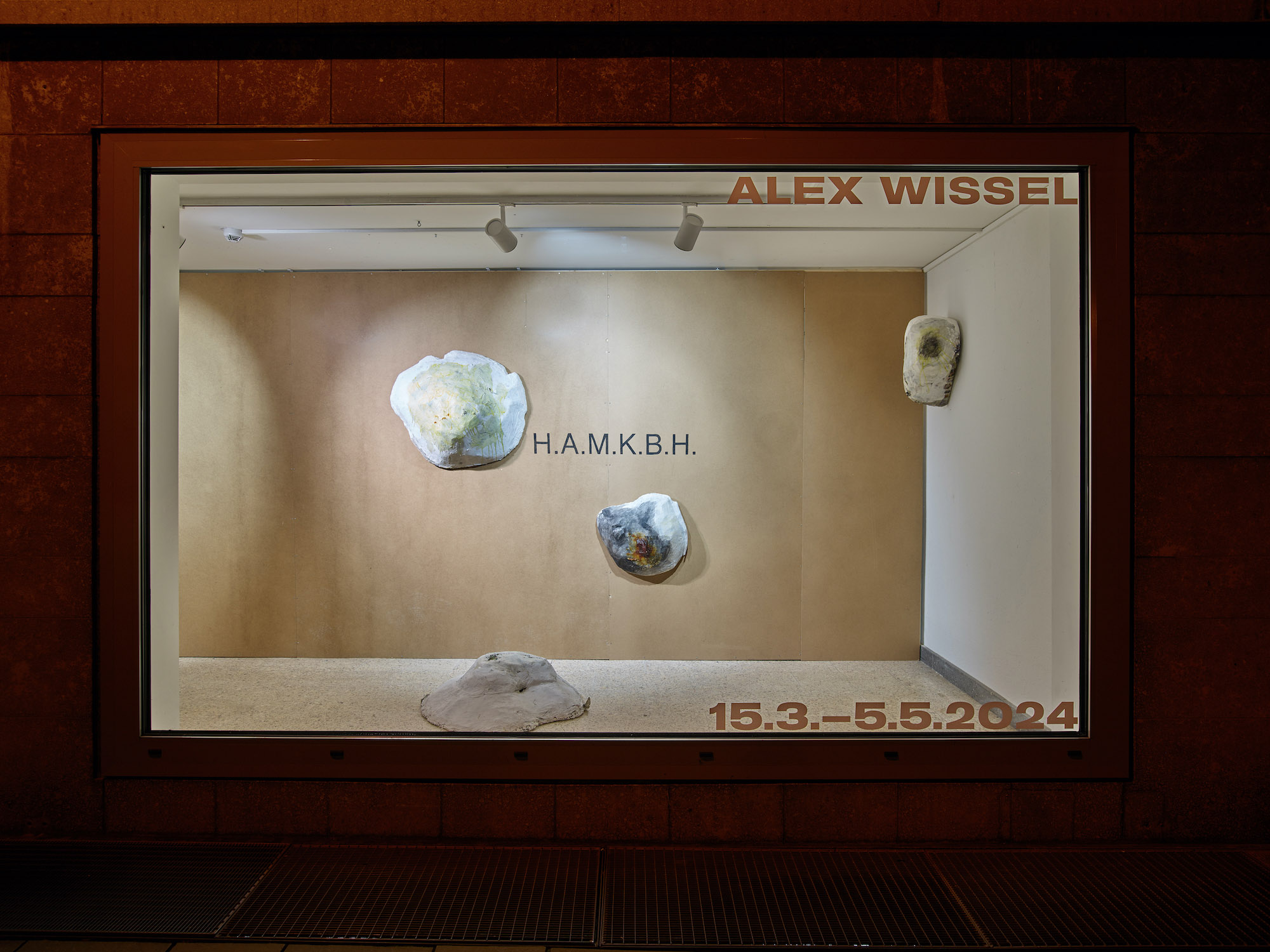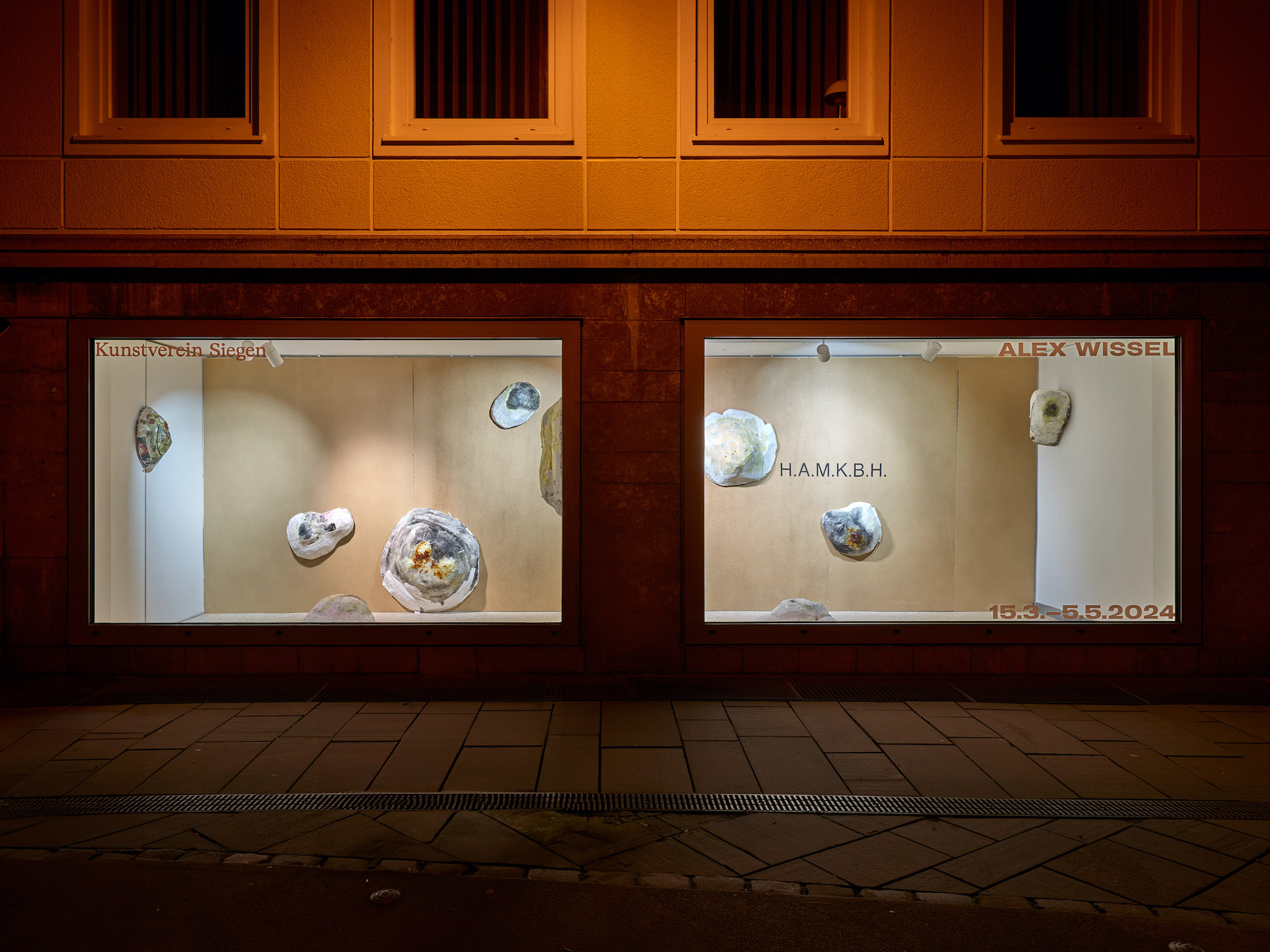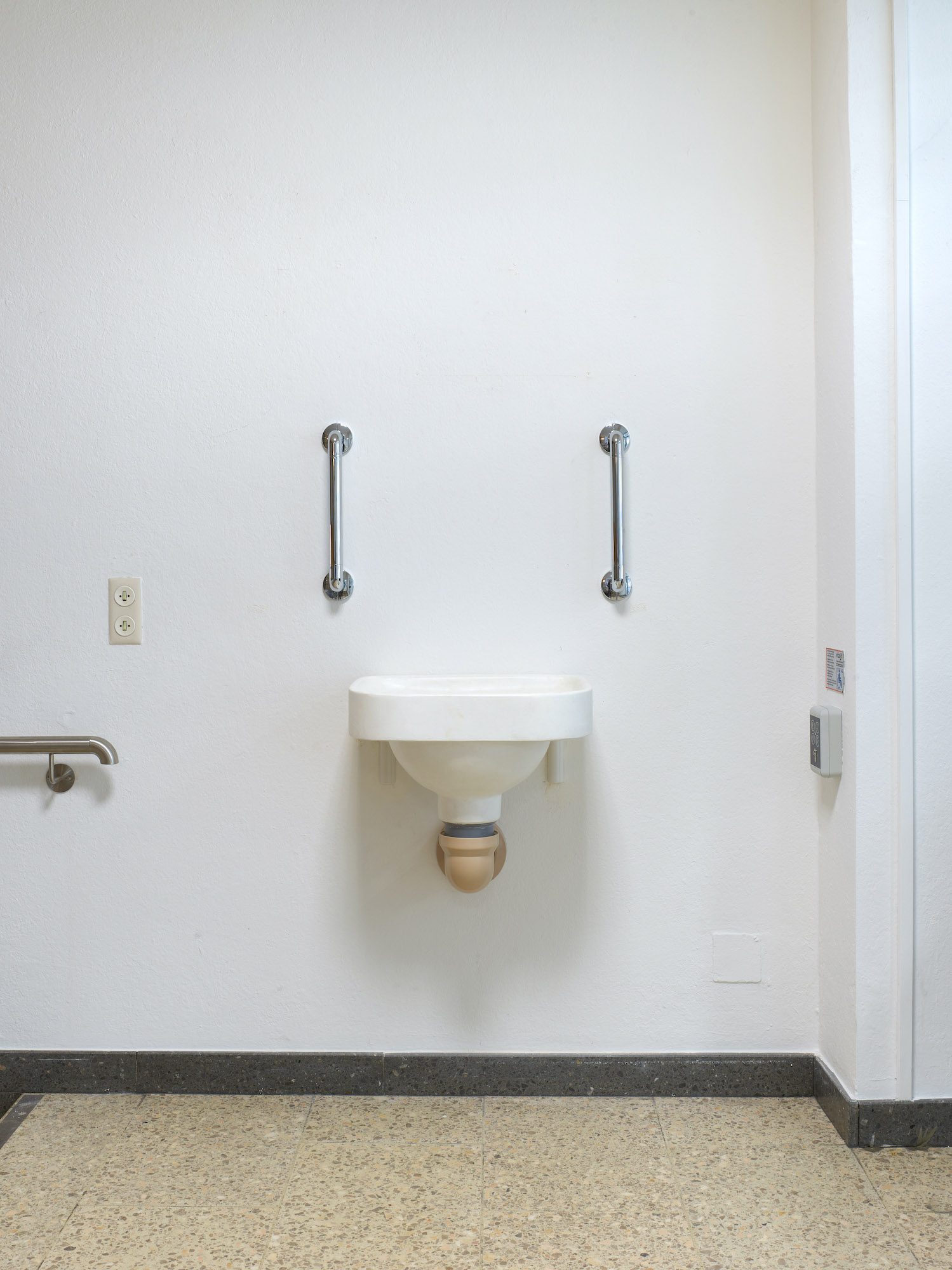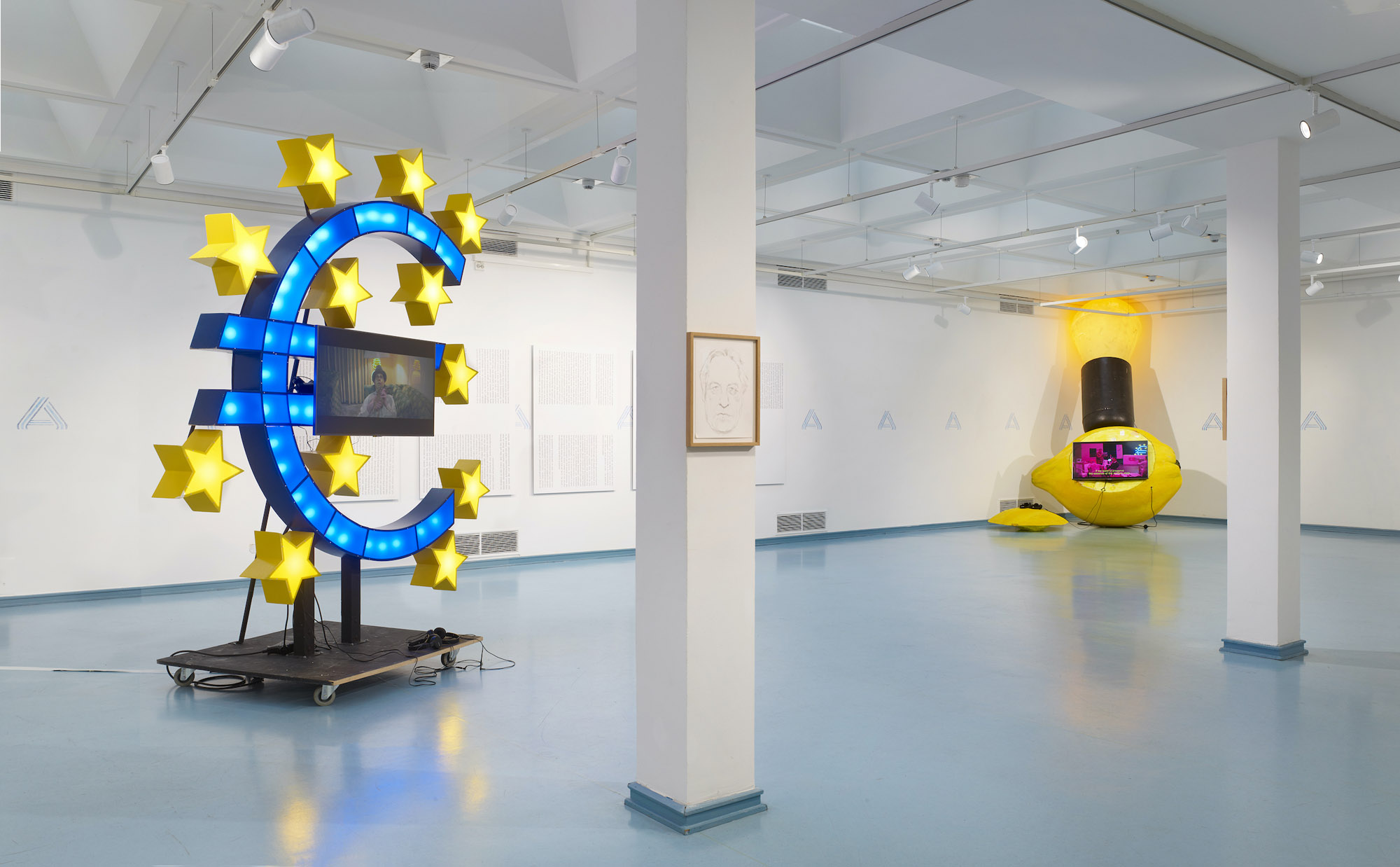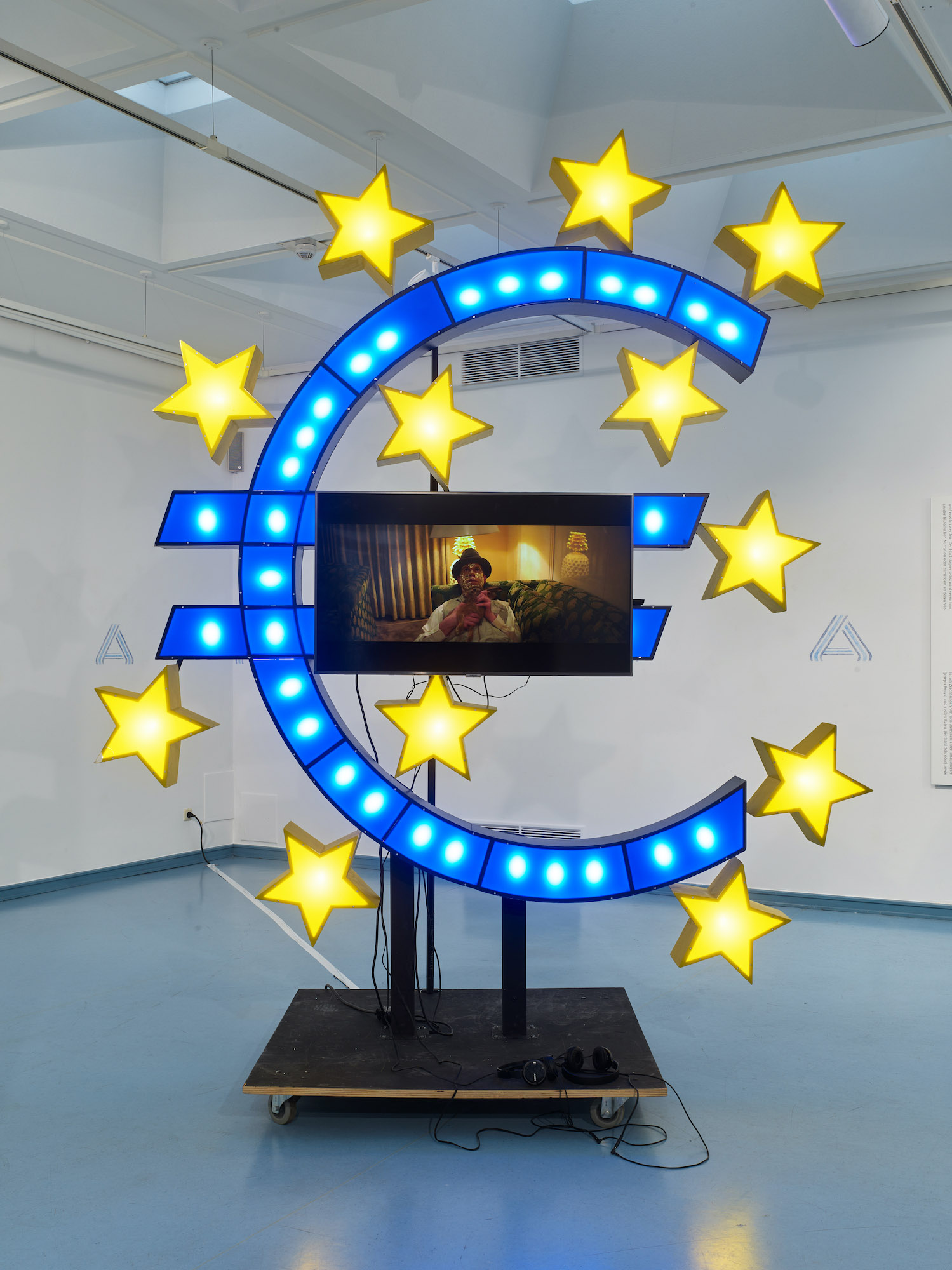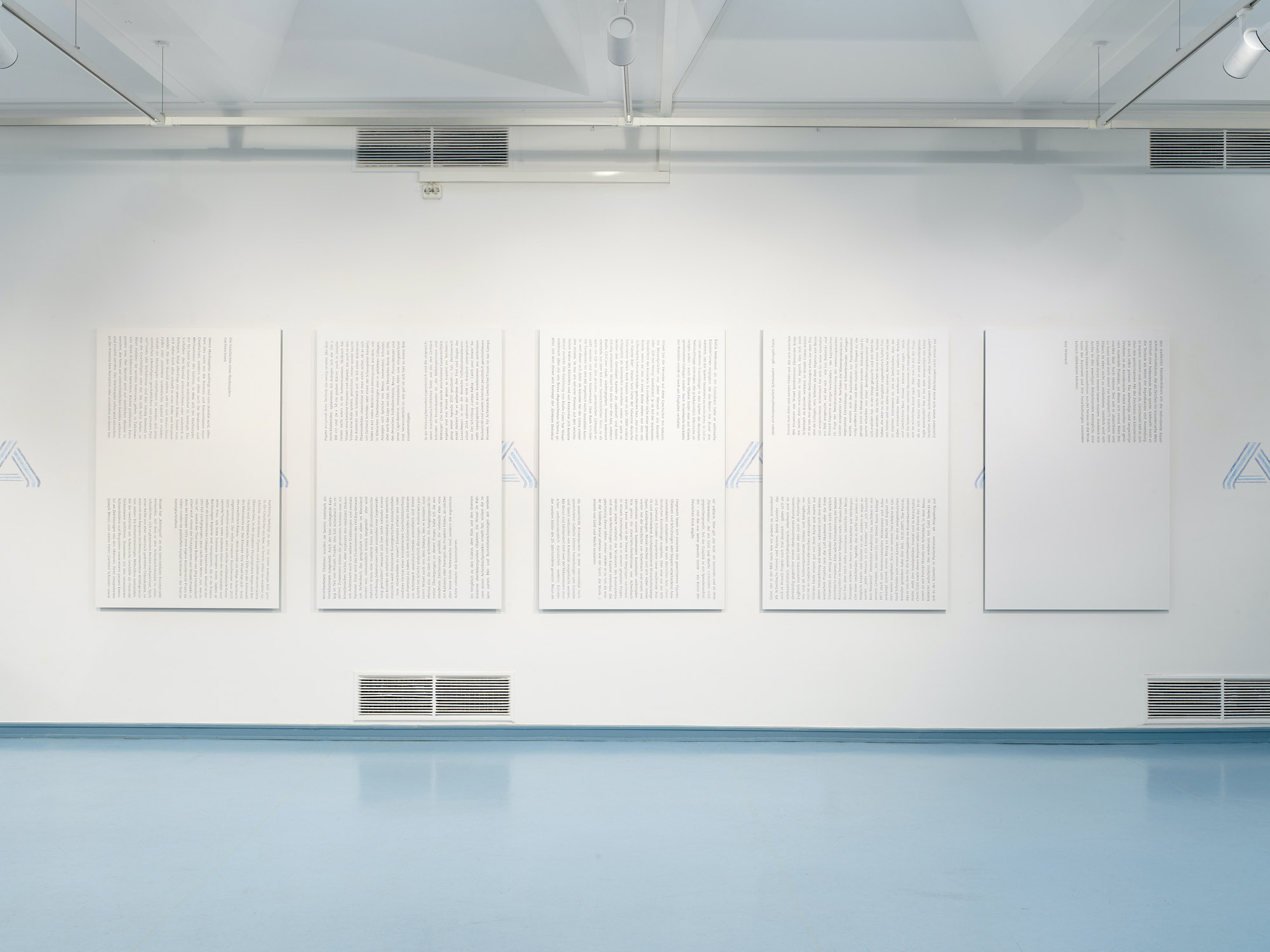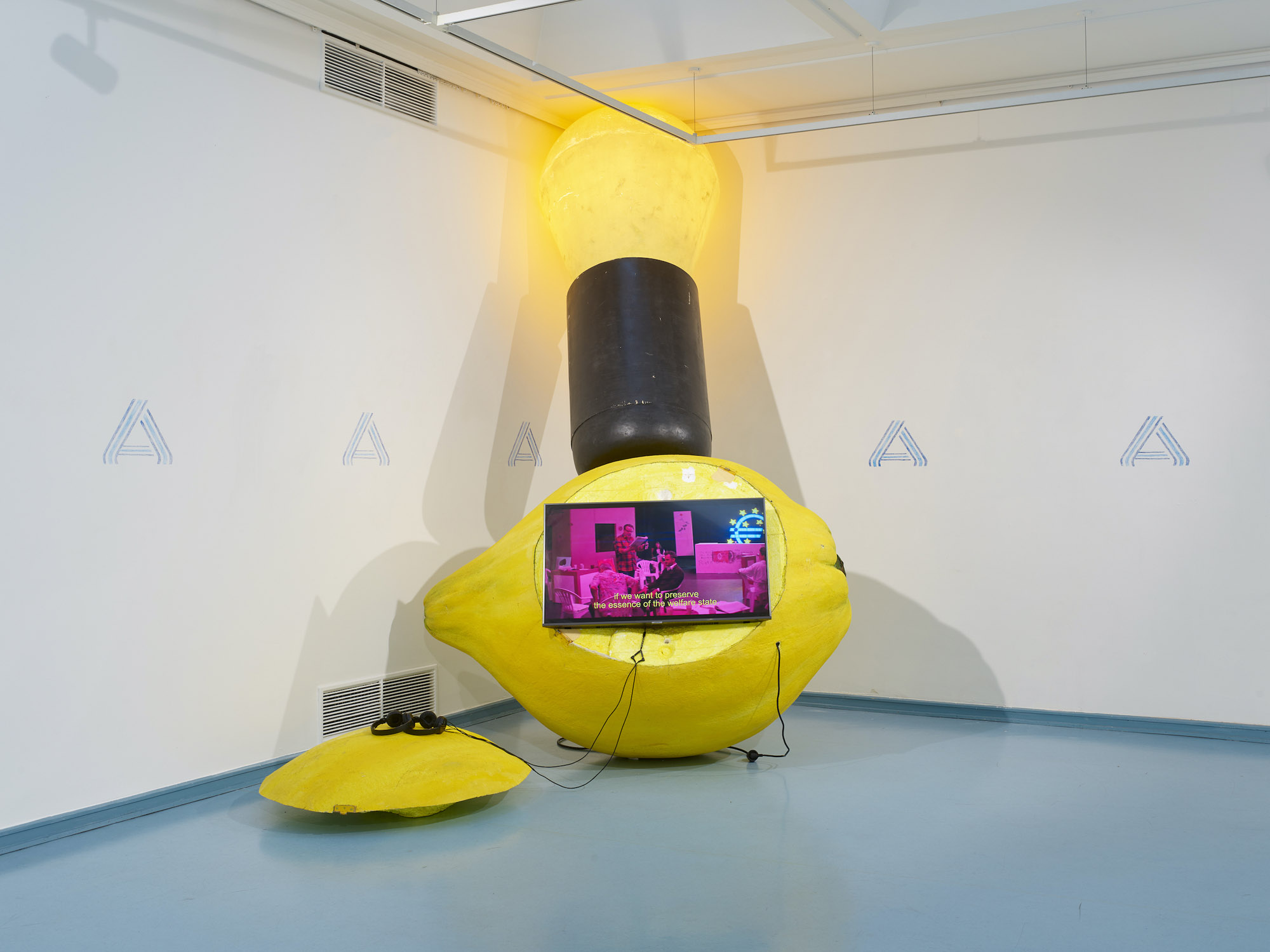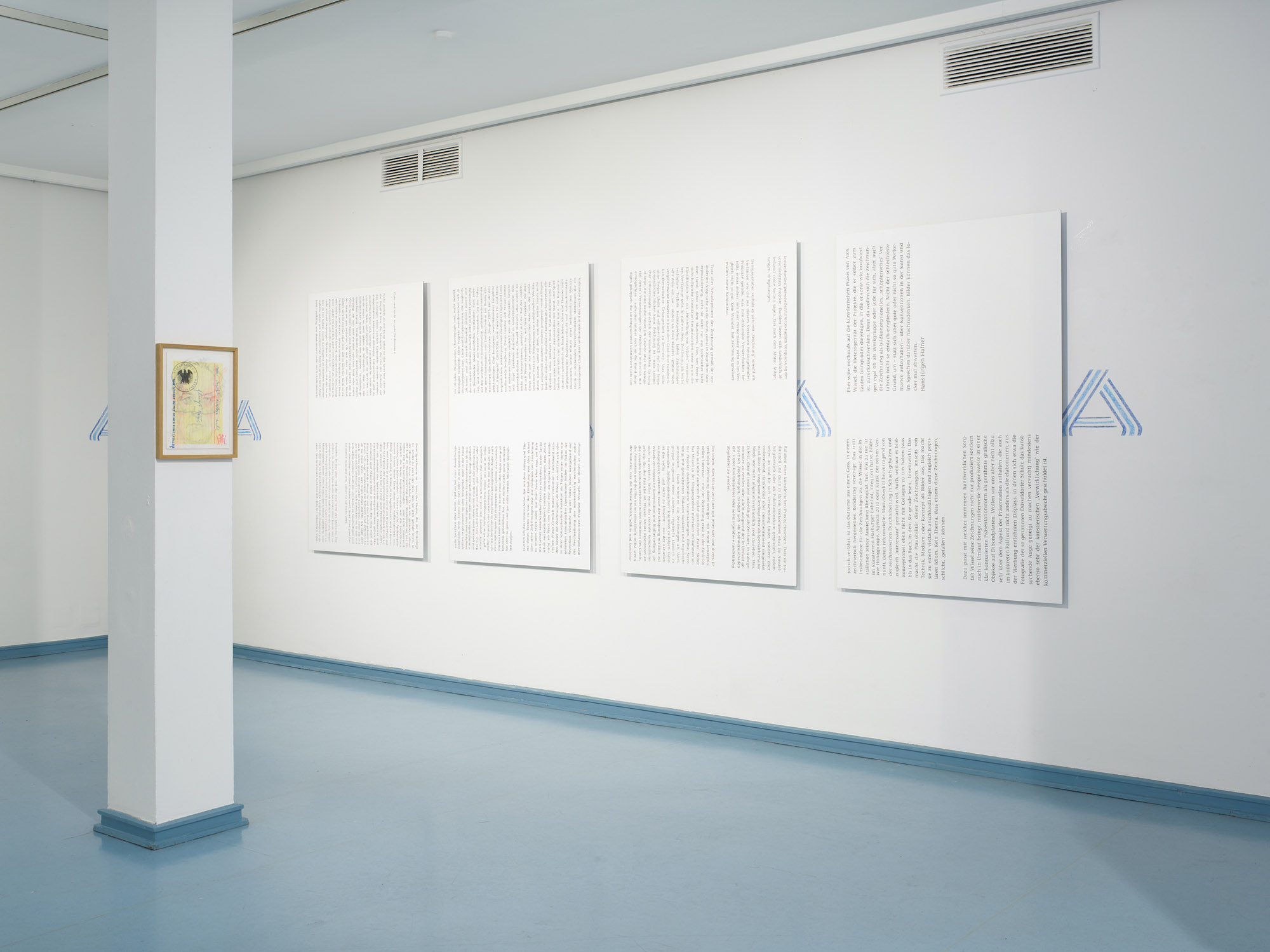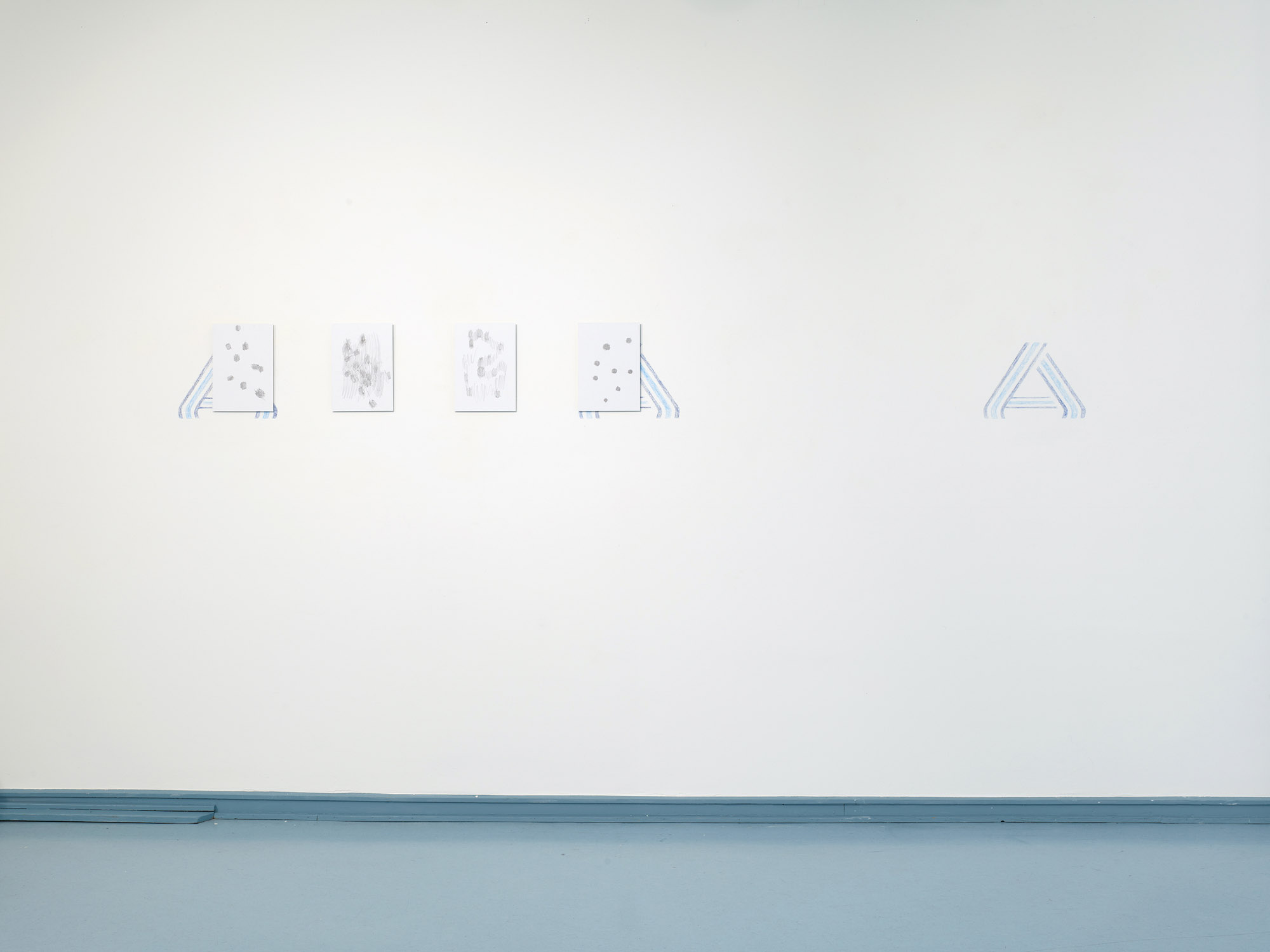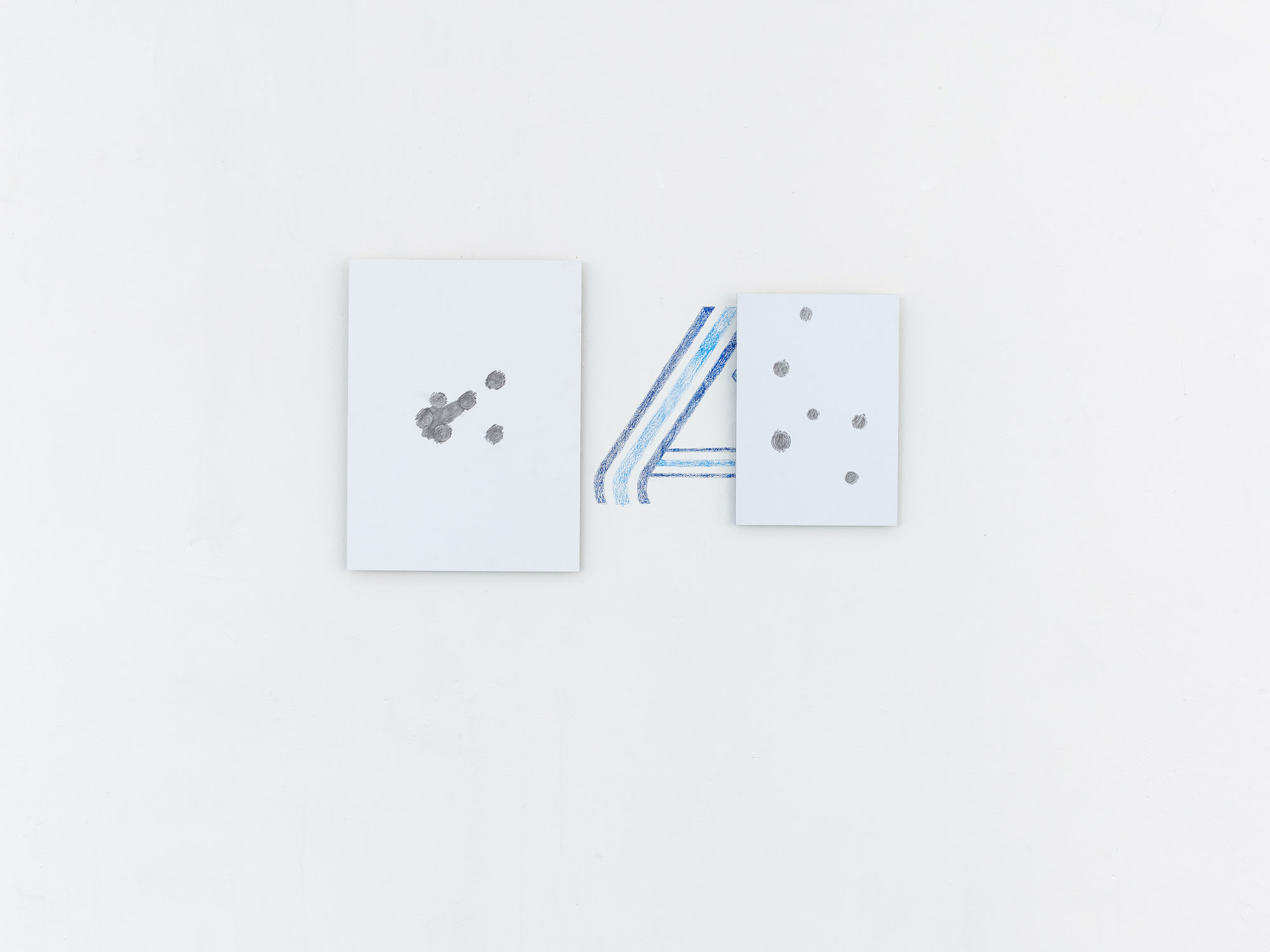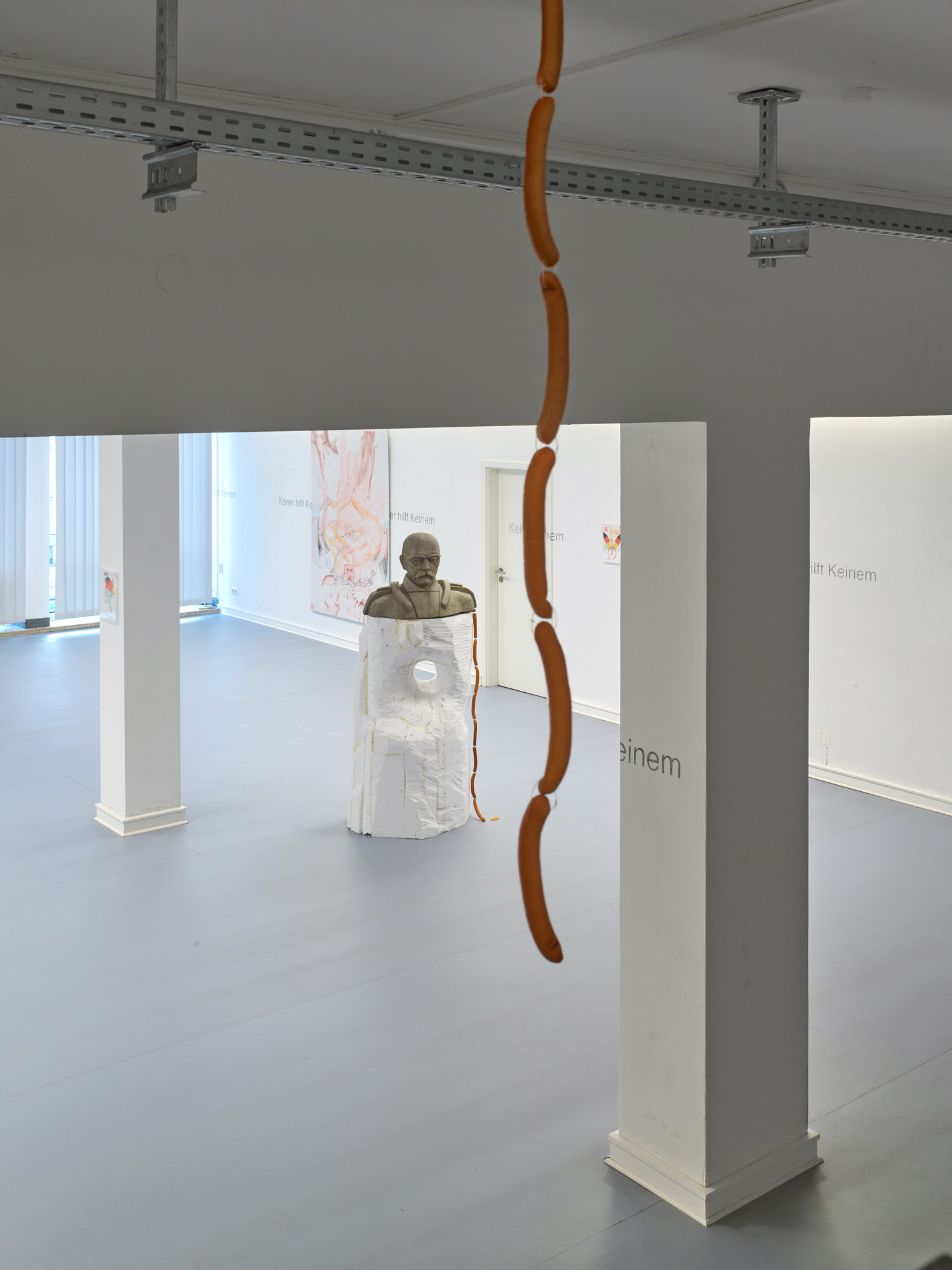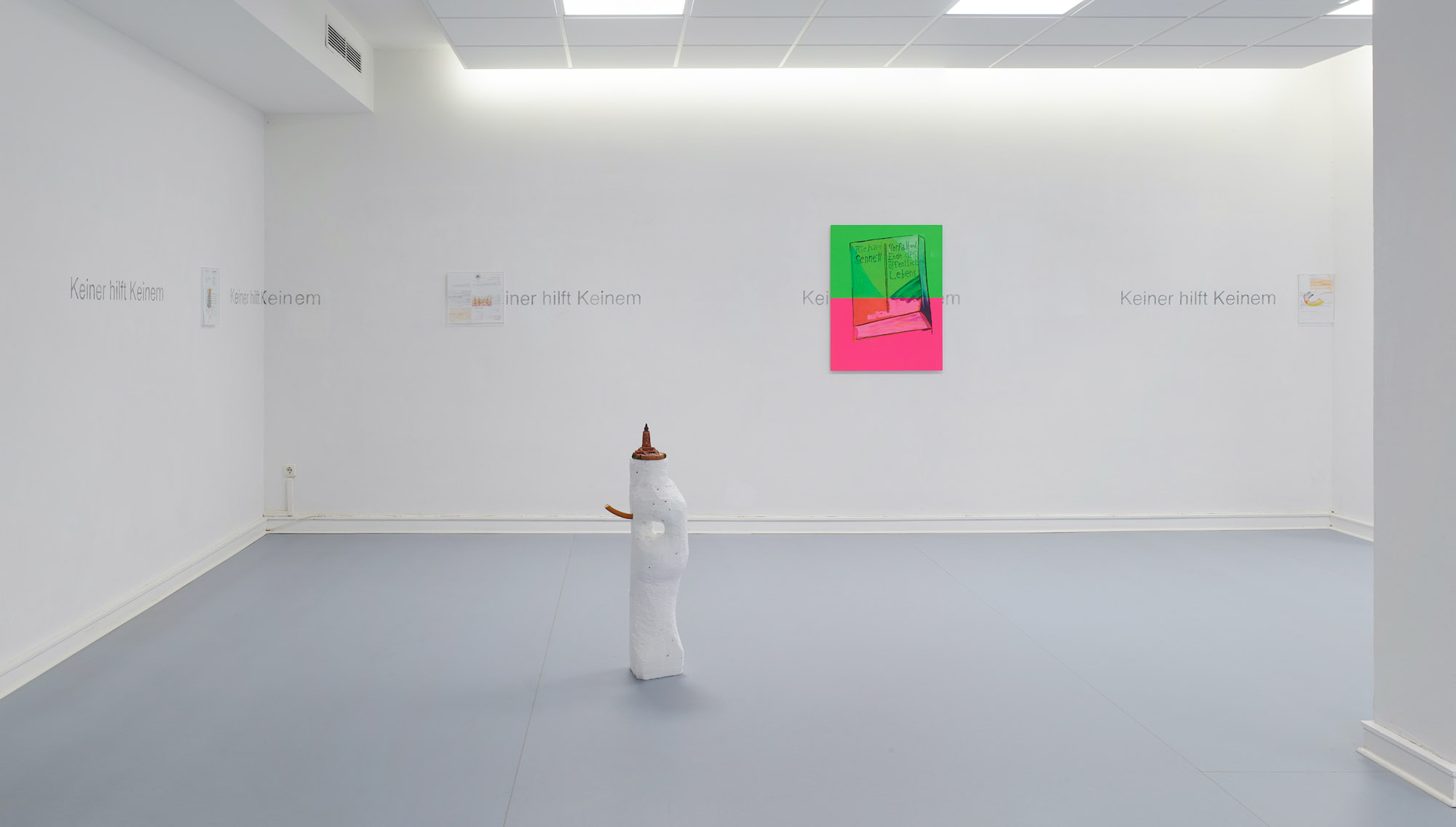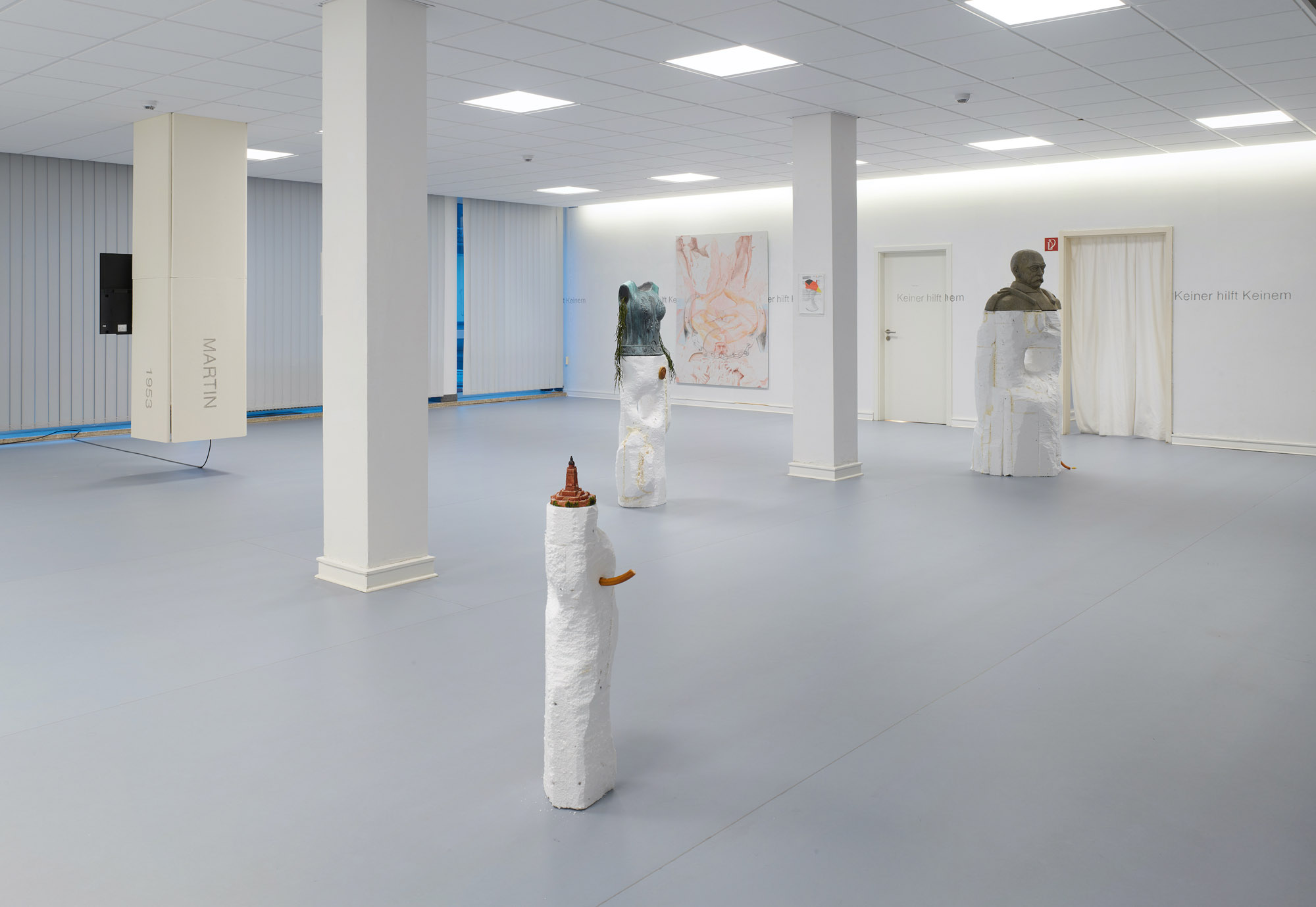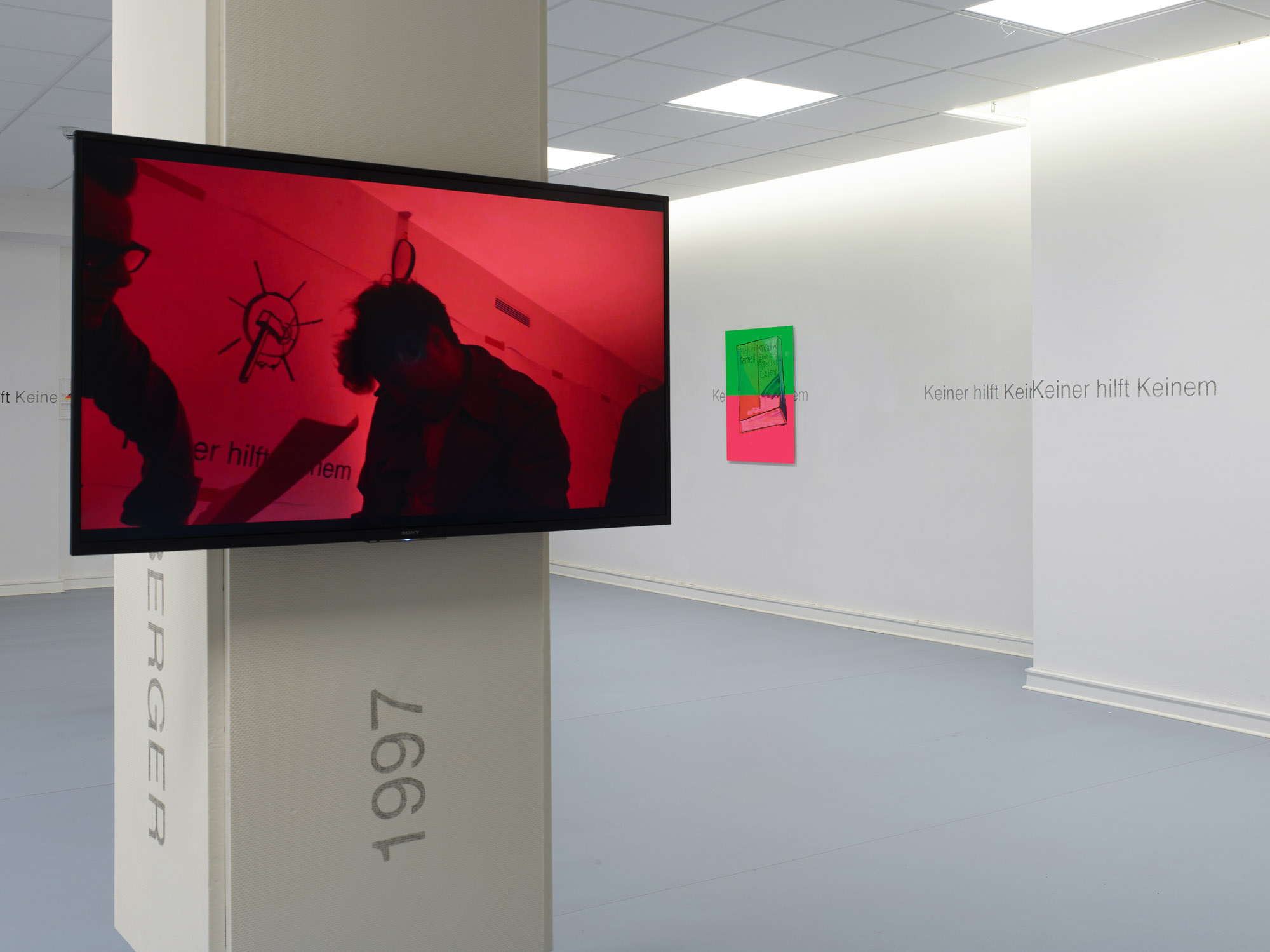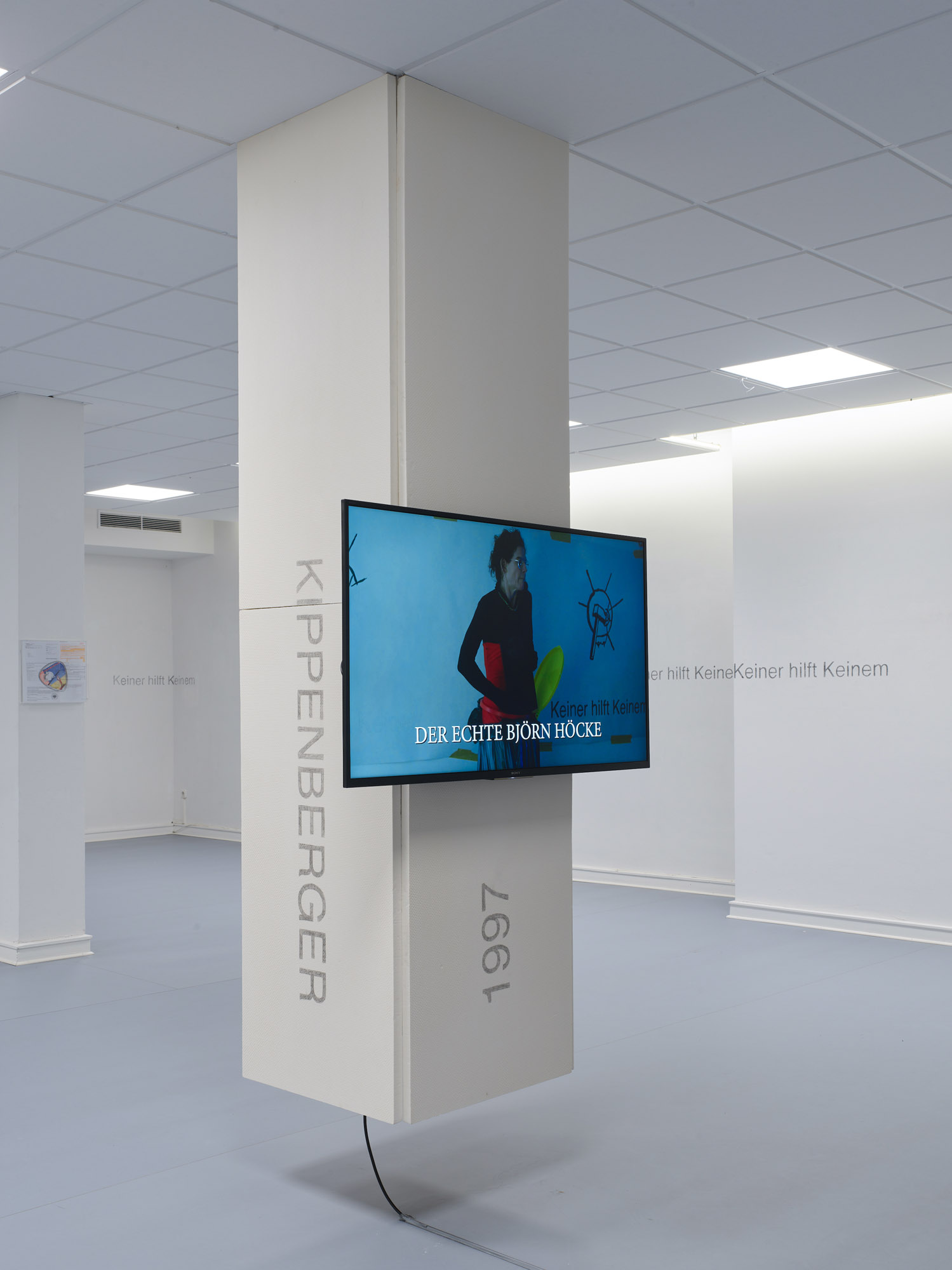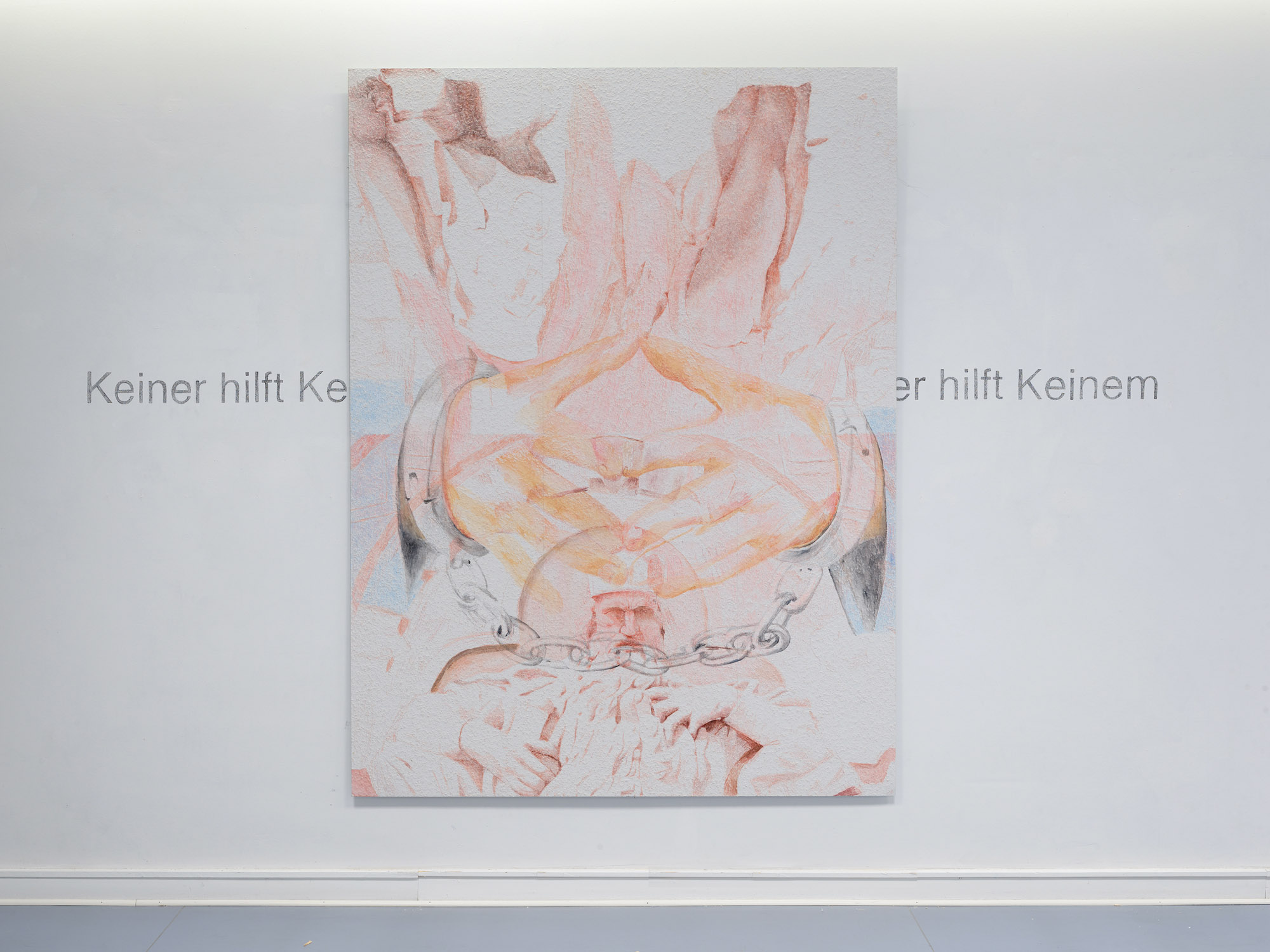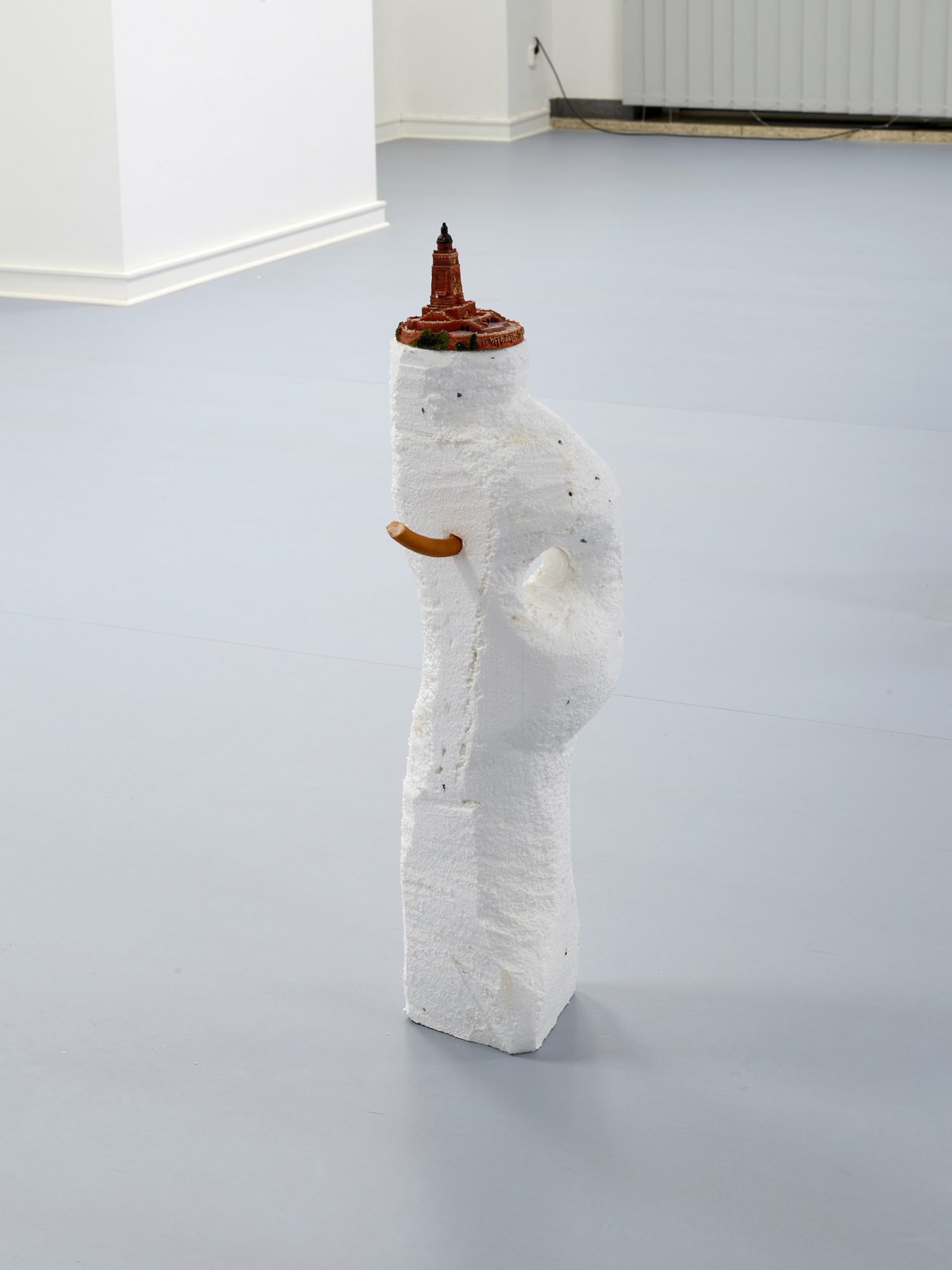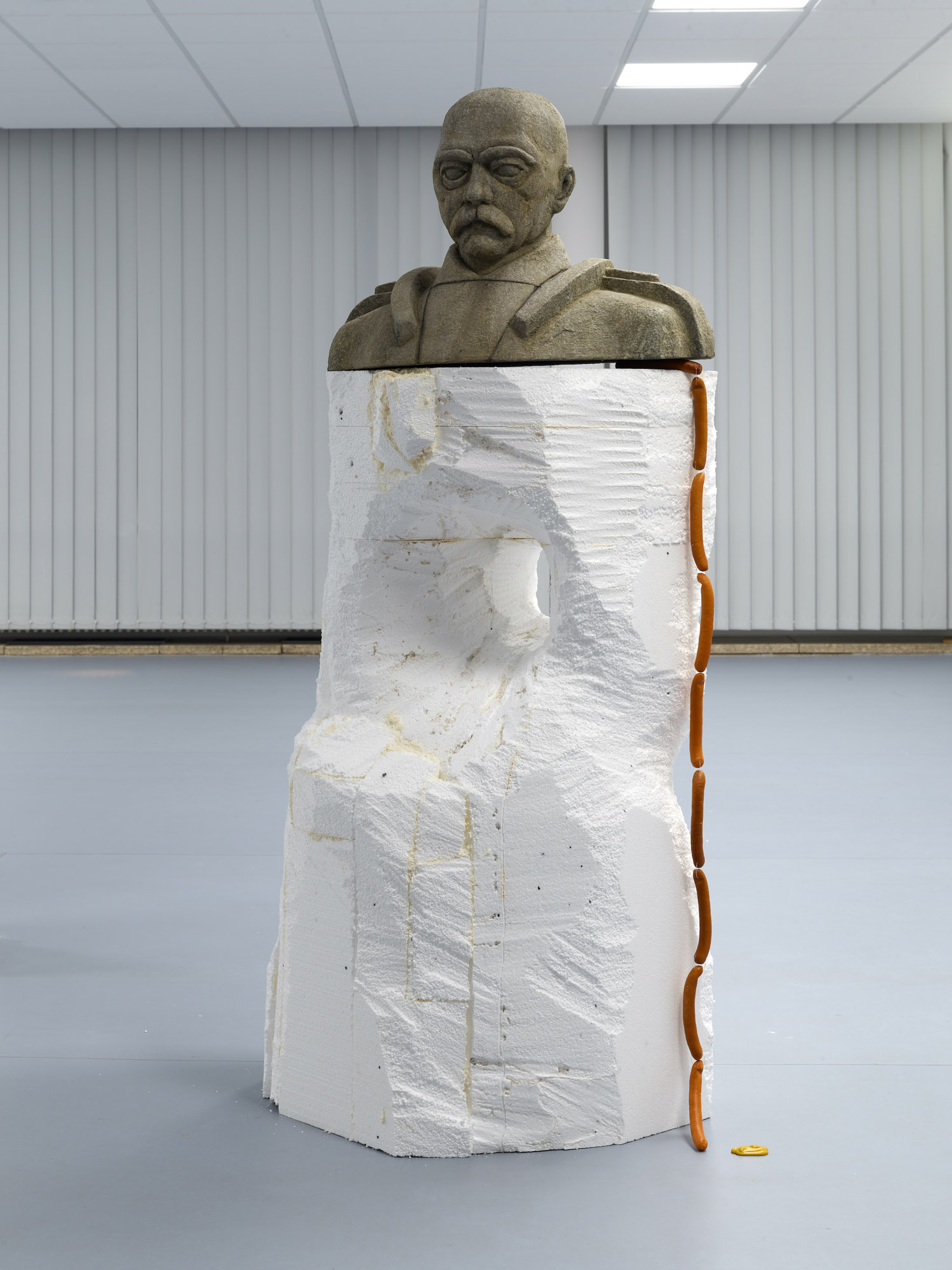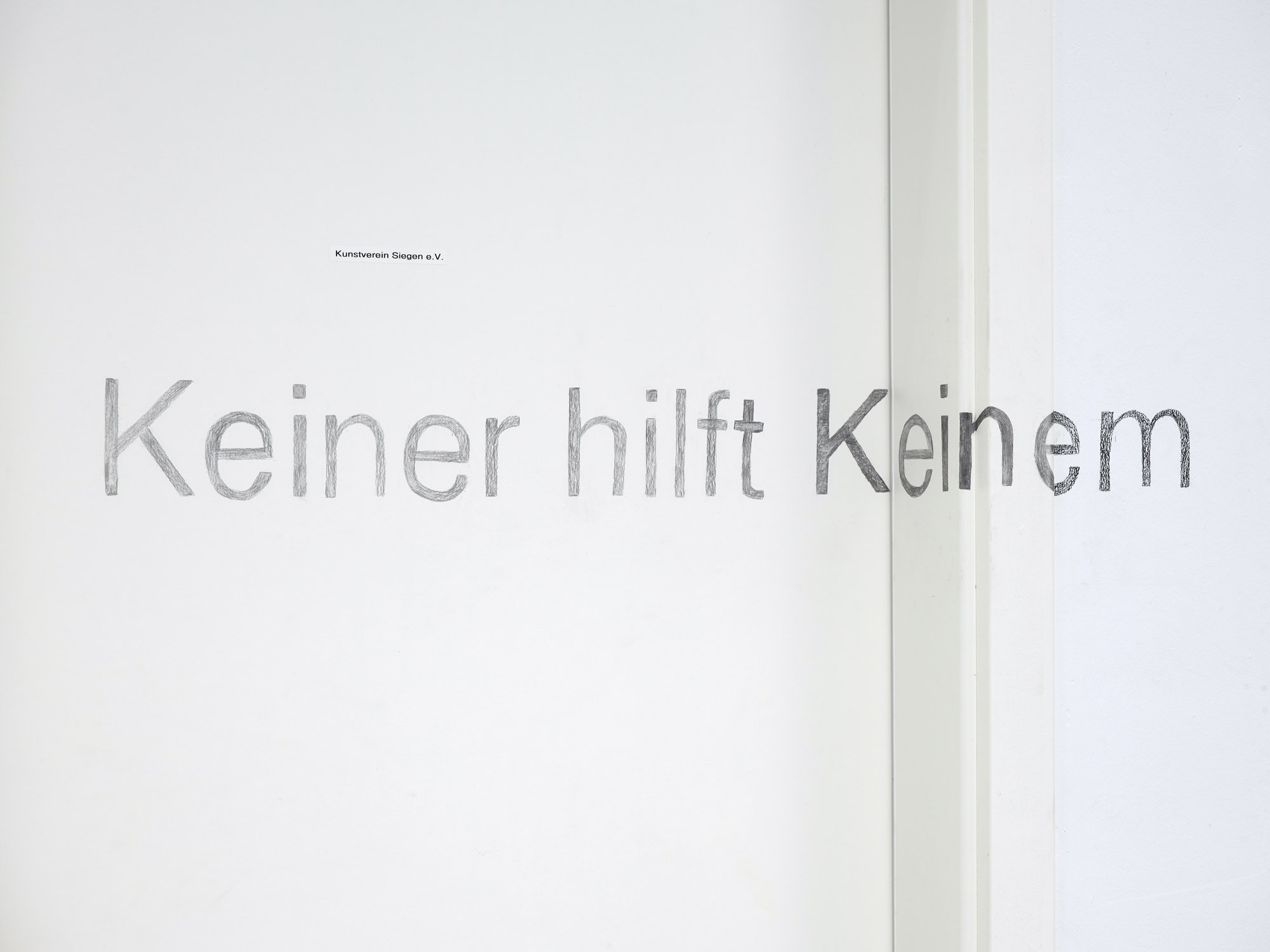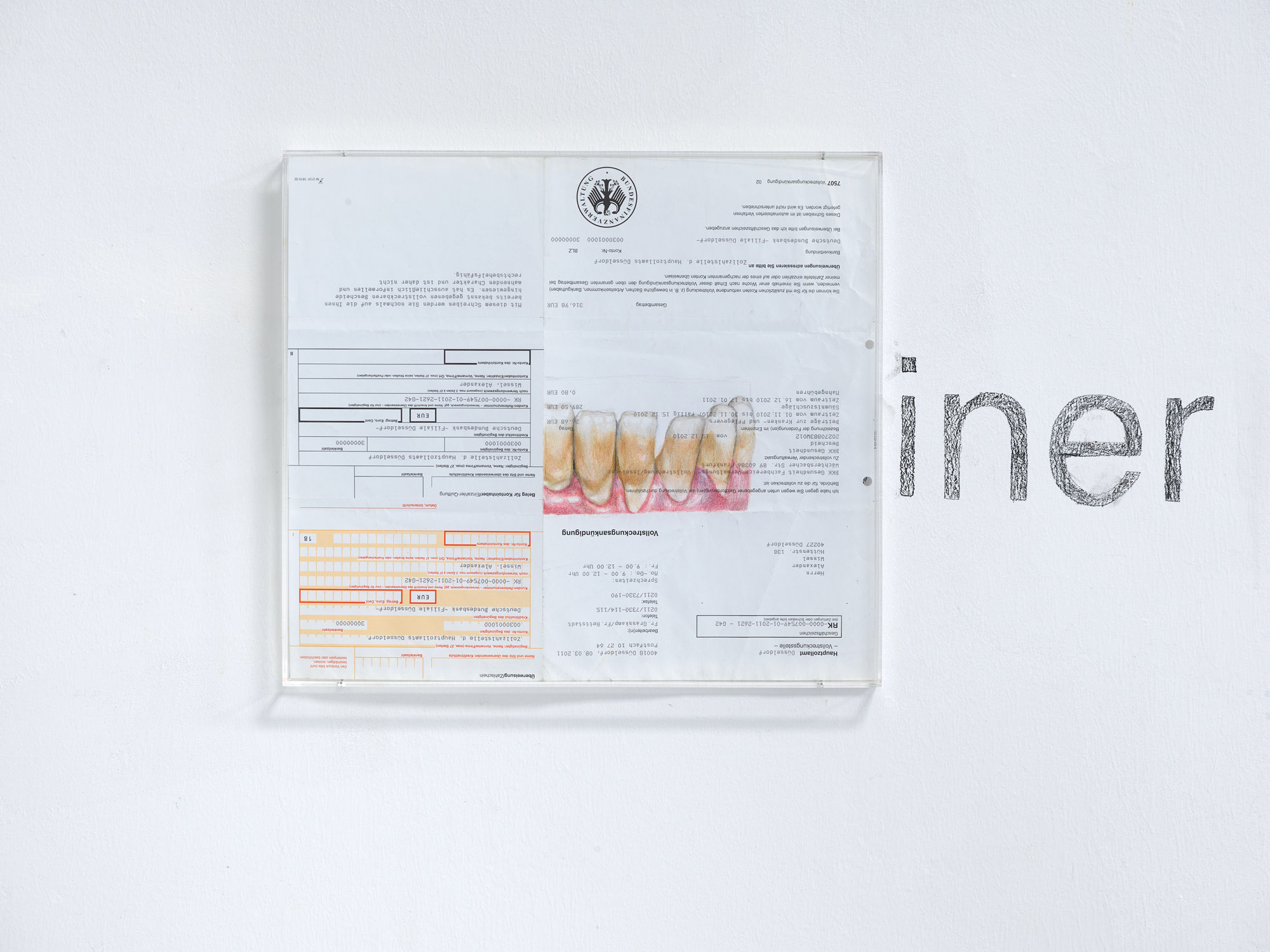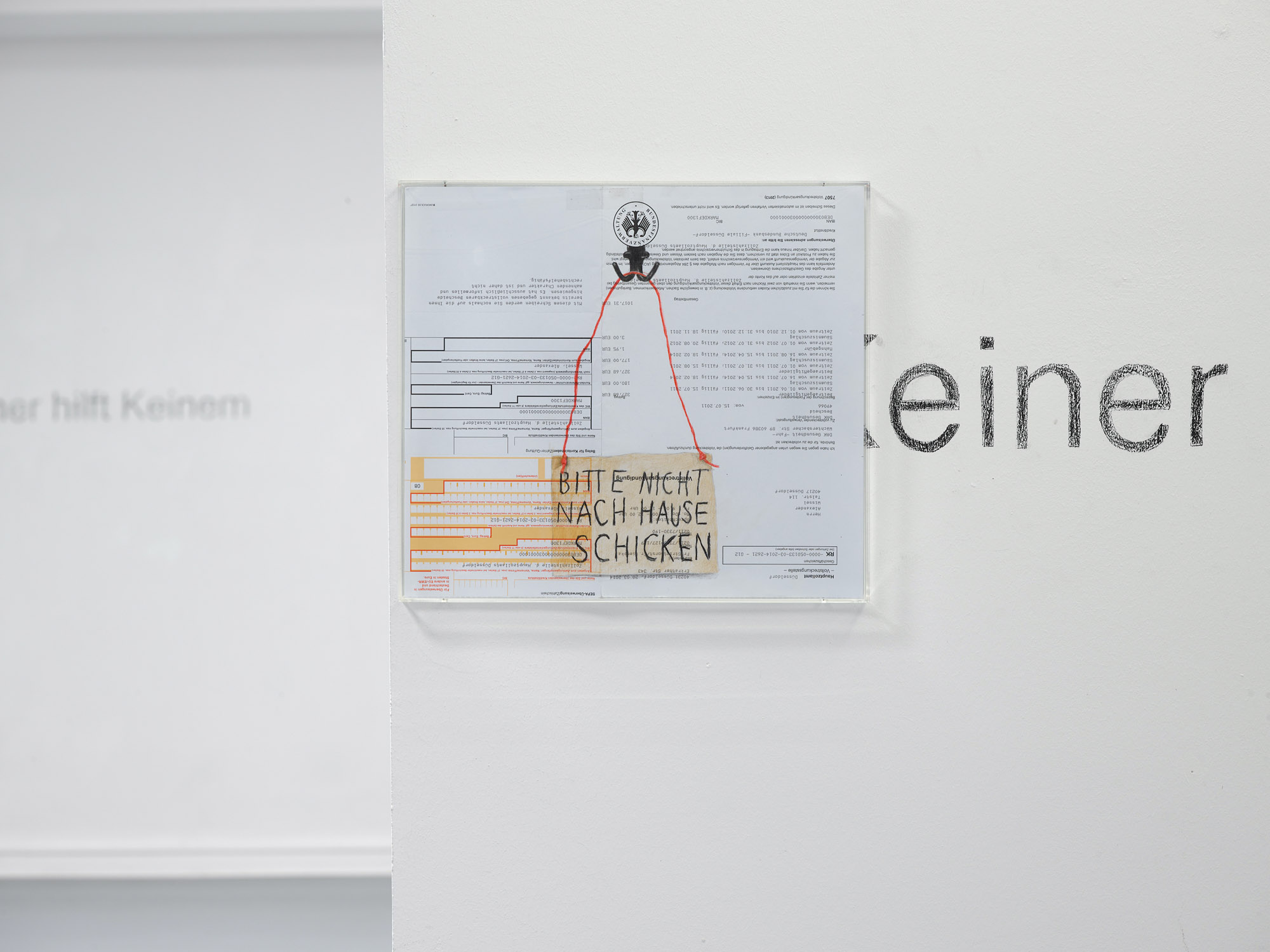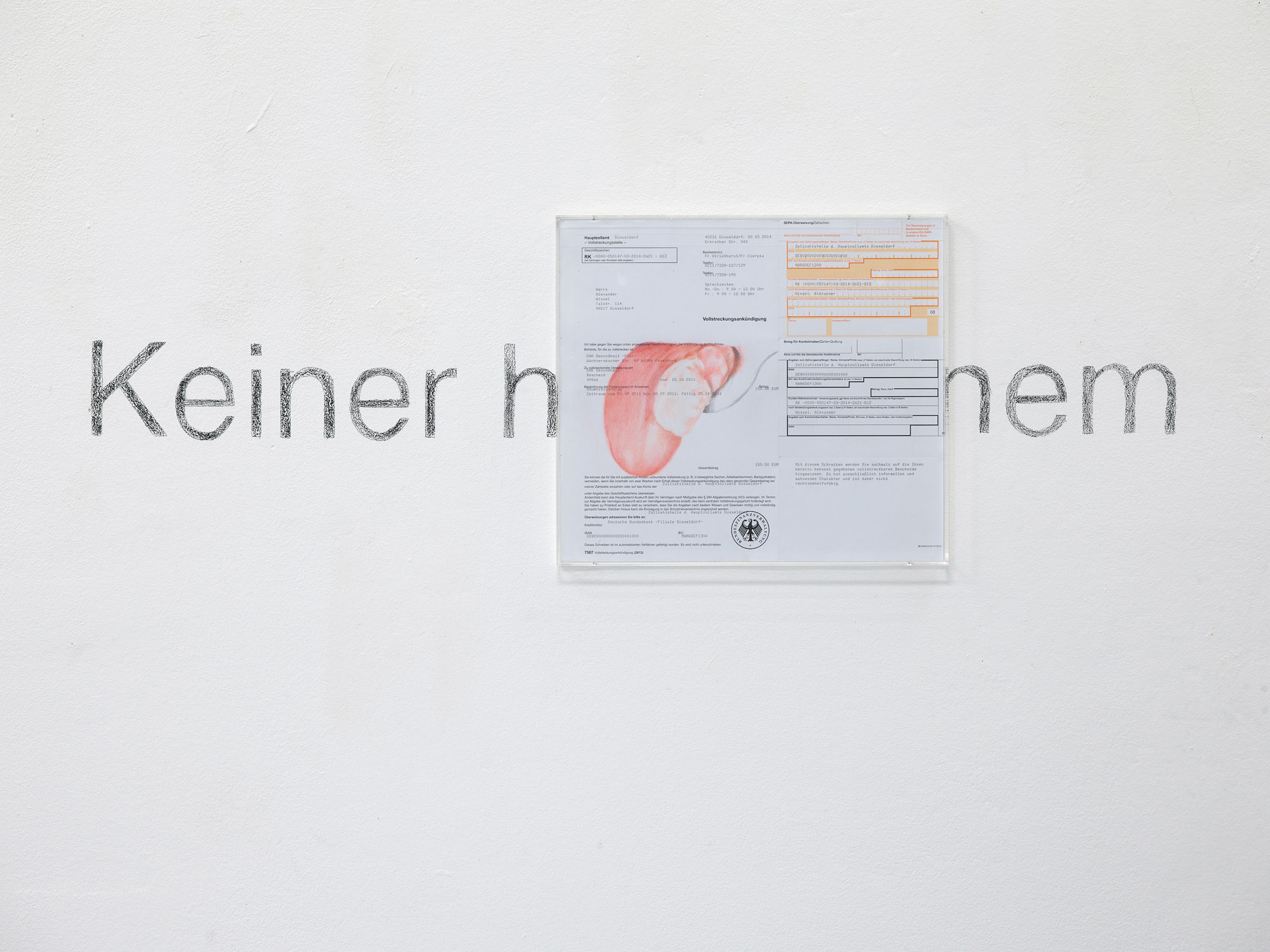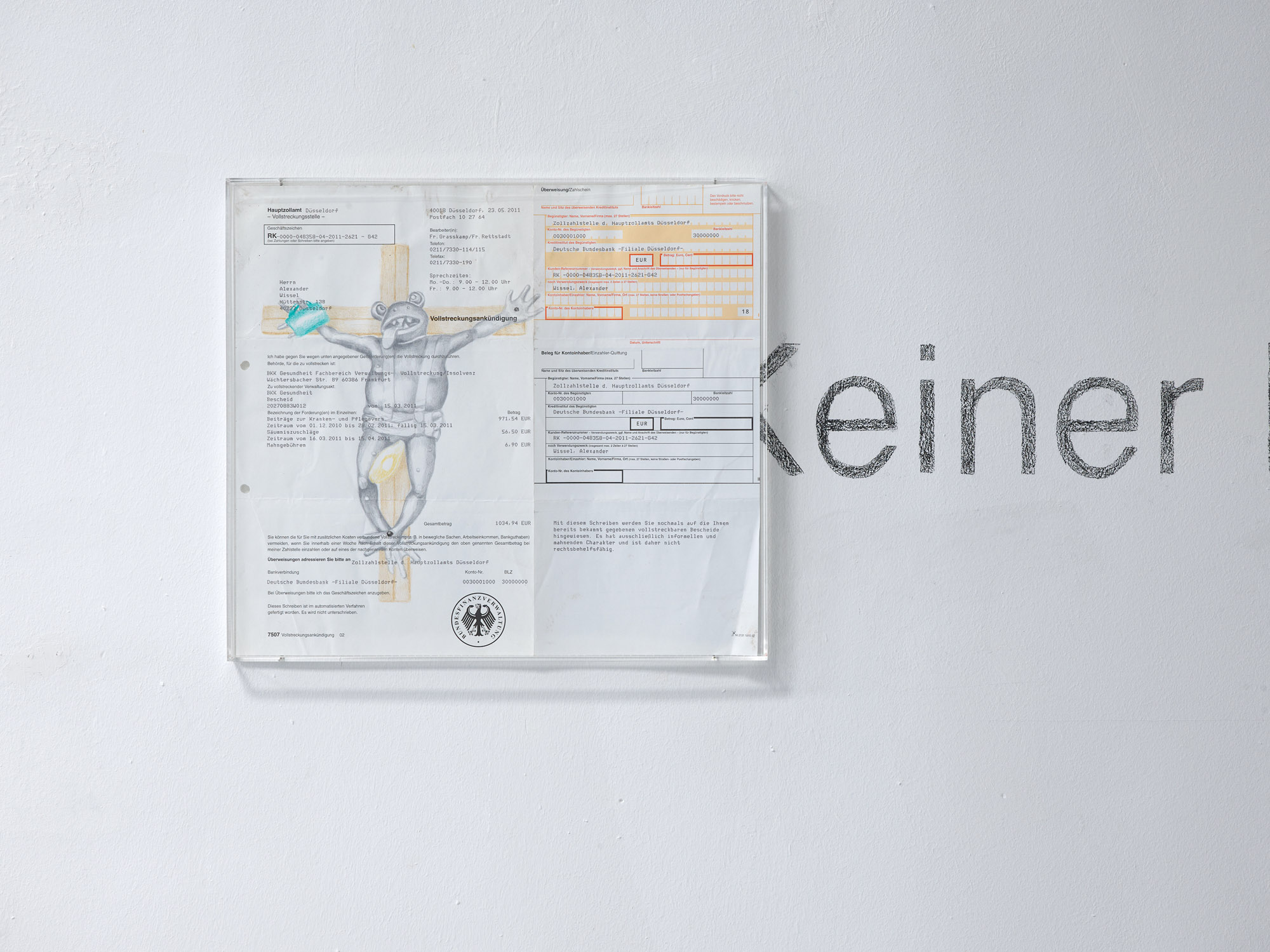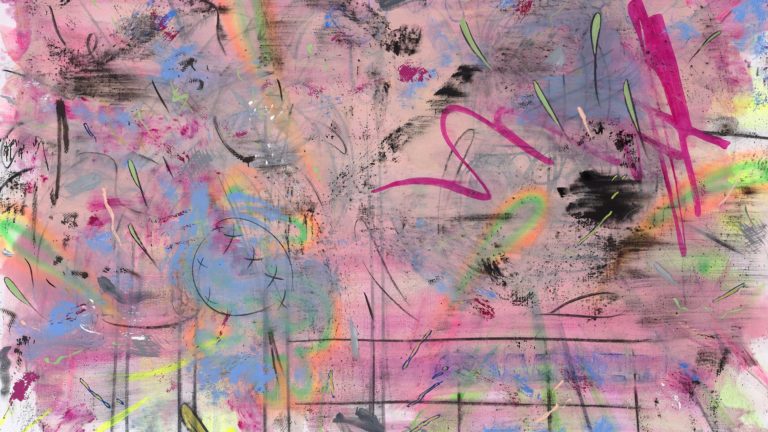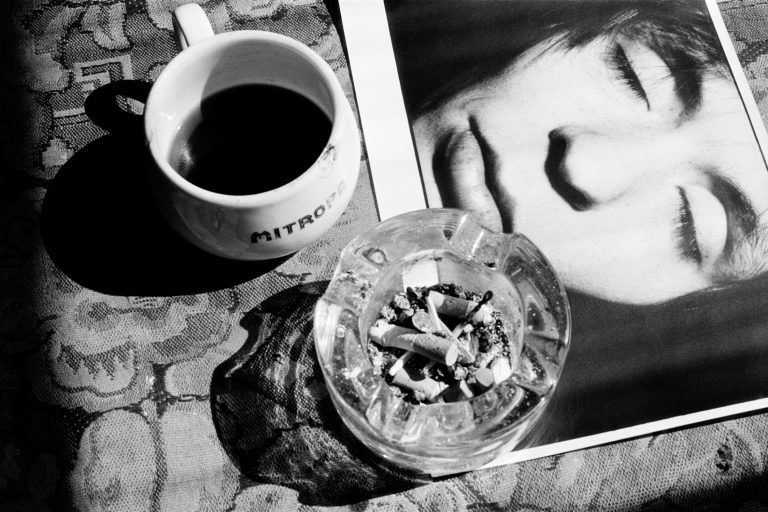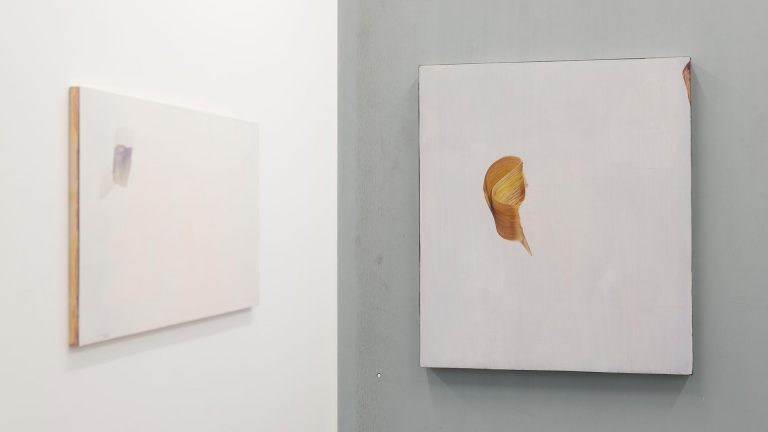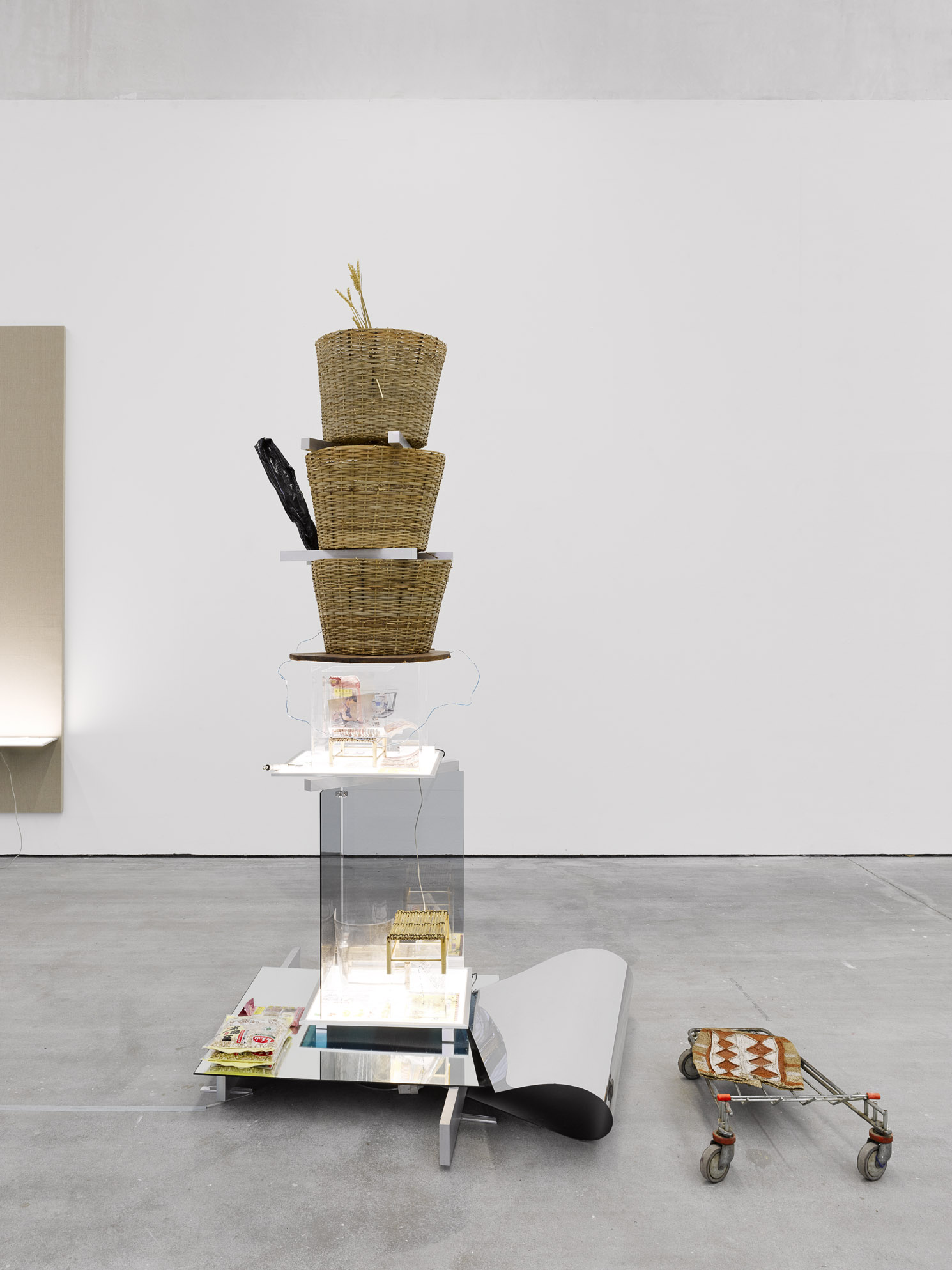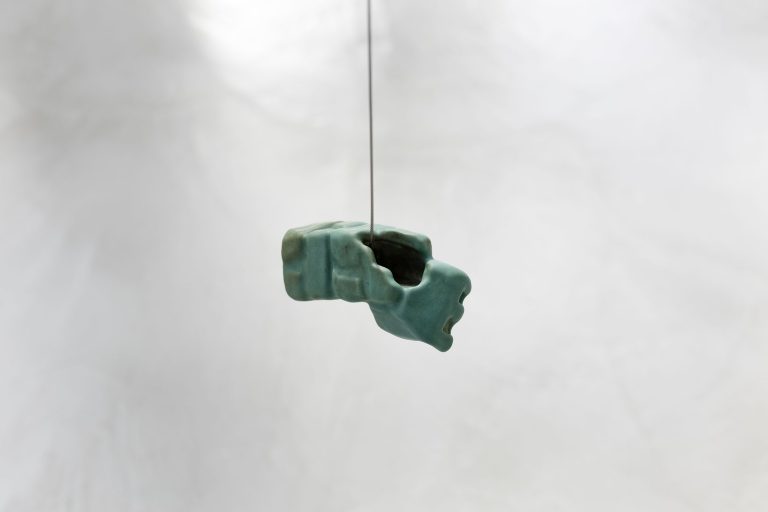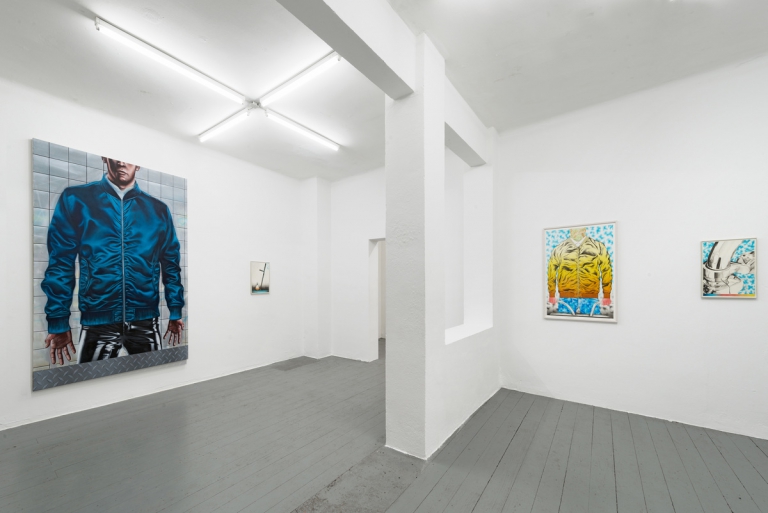Artist: Alex Wissel (in collaboration with Jan Bonny)
Exhibition title: H.A.M.K.B.H.
Curated by: Jennifer Cierlitza
Venue: Kunstverein Siegen, Siegen, Germany
Date: March 15 – May 5, 2024
Photography: Simon Vogel / all images copyright and courtesy of the artist and Kunstverein Siegen
Installation? Provocation? Reflection? Alex Wissel’s exhibition ‘H.A.M.K.B.H.’ is a bit of all of these – and an unruly web of associations, allusions and reflections. It is about the mutual influence and instrumentalisation of art, politics and business. At the same time, the exhibition is an examination of the biographies and networks of Helge Achenbach, Martin Kippenberger and Björn Höcke, whose initials are present in the exhibition title.
Between large ‘Plague Bumps’, a giant Beuysian ‘Capri Lemon’, sculptural works such as the ‘Hunger Family’ and syncopated video sculptures and drawings, Alex Wissel asks what can still be salvaged from art: For him, the possible honesty of its former intention seems to have been constantly corrupted by its role as a pawn in a variety of political, economic and identitarian interests.
Alex Wissel works at the intersection of high art and popular culture. Project- and process-oriented work has played an important role in his work in recent years. He usually works within larger groups of works that explore a theme in an exhibition and cross-media narrative.
Collaborative and interdisciplinary contexts are often important and different working processes are realised in parallel and in relation to each other. His artistic practice is characterised by an engagement with cultural history and he works in a wide range of media, from drawing to spatial installation. In his long-standing collaboration with director Jan Bonny, he also creates experimental film and theatre works that blur the boundaries between visual art, theatre and film.
Both the ‘Rheingold’ series and the new ‘HA HA M.K.B.H’ series will be on show at Haus Seel. For the works of the artist, who was born in 1983 and lives in Düsseldorf, the regional centre of Siegen itself serves as a framework and point of departure. Helge Achenbach was born in Weidenau in 1952, and the father of Martin Kippenberger, who was a year younger and died in 1997, also came from the Siegerland.
Parts of the ‘Rheingold’ group of works will be on display on the upper floor of the exhibition. “Rheingold was created between 2016 and 2019 in a process that spanned different media and exhibitions. The group of works is based on the figure of art consultant Helge Achenbach, who was convicted of 18 counts of fraud in 2015. According to the judges, the art consultant was guilty of fraud by manipulating invoices. The damage he caused to Aldi heir Berthold Albrecht in this way alone is estimated at around 19 million euros. The defendant’s claim that this practice was commonplace in the art world was just as damaging to his image in the art world as the fact that the forged invoices were described as a collage. The biography of Helge Achenbach is used in “Rheingold” to show with fairy-tale realism how neo-liberal reality has been created in Germany over the past 25 years. At the centre of the film is the question: How did Beuys’ dictum “Everyone is an artist” become “Ich-AG”?
A new group of works, ‘HA HA M.K.B.H.’, will be shown in the basement of the exhibition.
The starting point for this group of works is a reconsideration of the “extreme artistic behaviour” of the Cologne art scene around Martin Kippenberger and the “Hetzler Boys” in the 1980s, which was considered subversive.
The informal performances after exhibition openings (“Offizierskasino”, “Beleidigungsprogramm” and others) are restaged in a filmic work, taking into account current identity-political discourses on masculinity and the politics of memory, as well as the contemporary historical context of the first historians’ controversy. Martin Kippenberger is regarded as the defining figure of the West German art scene of the 1980s. In “HA HA M.K.B.H.”, he is a kind of key-opener, leading us into the everyday world of the federal republic of Germany and visualising the discussions about the beginnings of the German culture of remembrance. In this experimental cinematic arrangement, Björn Höcke’s current call for a “180-degree turn in the politics of remembrance” and the AfD’s efforts to “reclaim masculinity” are also juxtaposed.
The exhibition, which runs until 5 May, will be accompanied by two events: On 4 April, the Kunstverein invites you to an artist’s talk at 7 p.m., and on 1 May, at 4 p.m., Stephan Trüby (University of Stuttgart) will speak on “Authoritarian (meta)politics in architecture and urbanism”.

